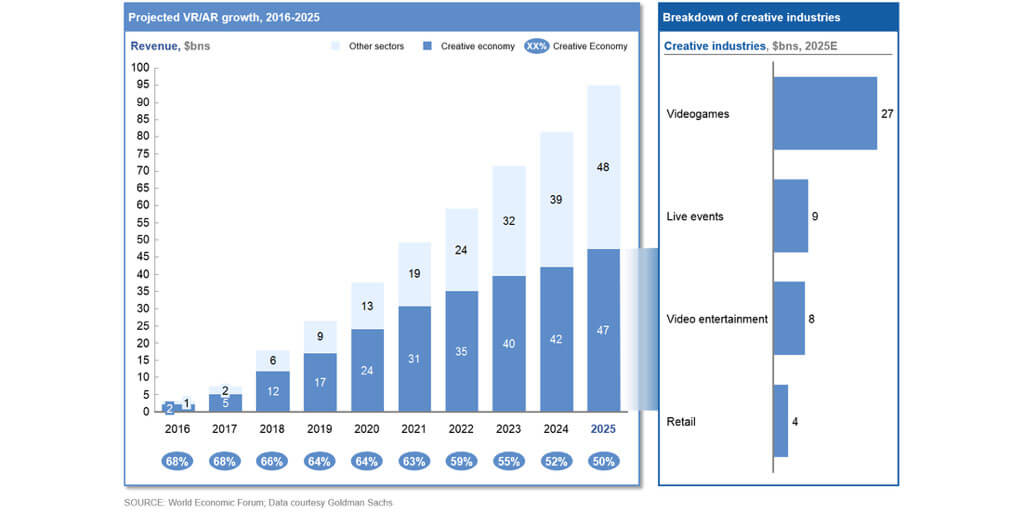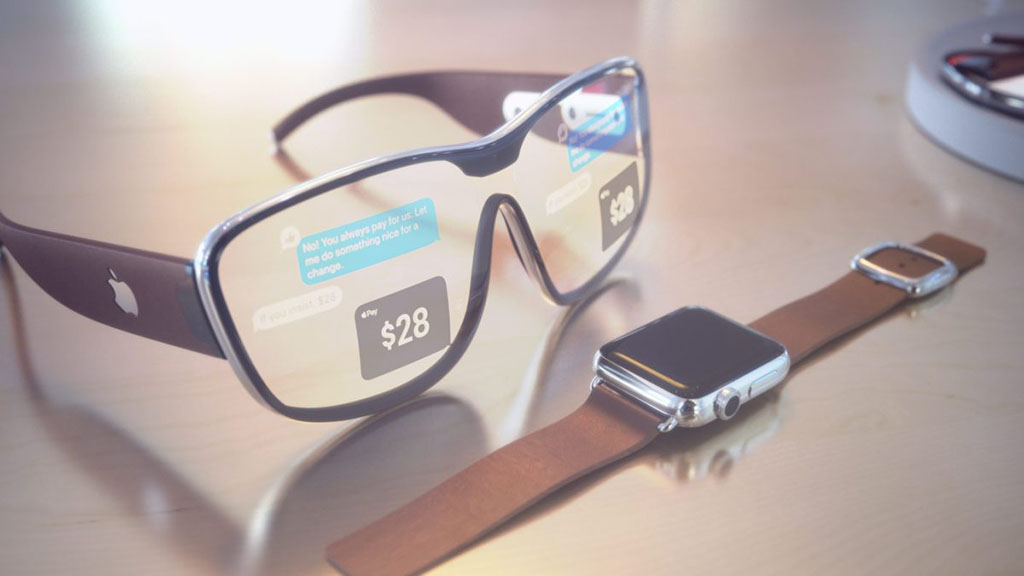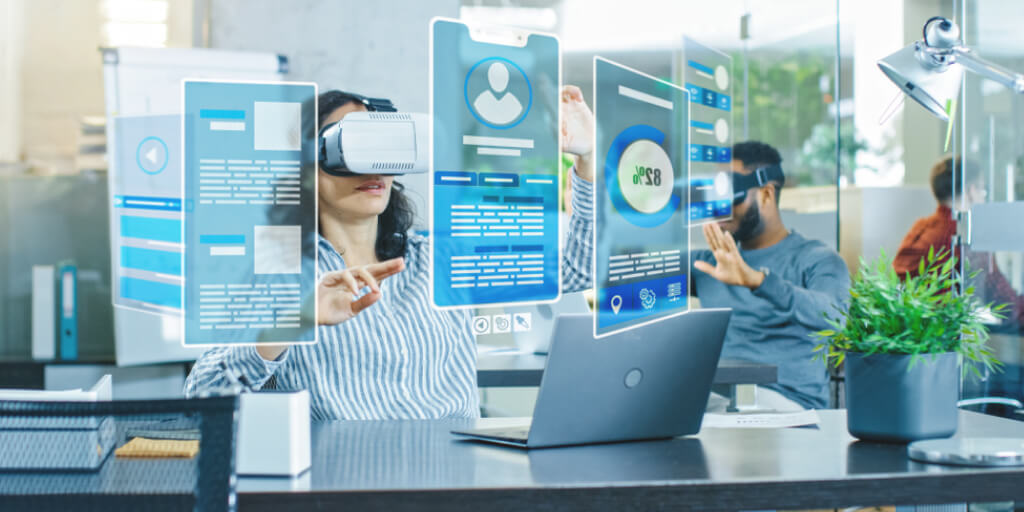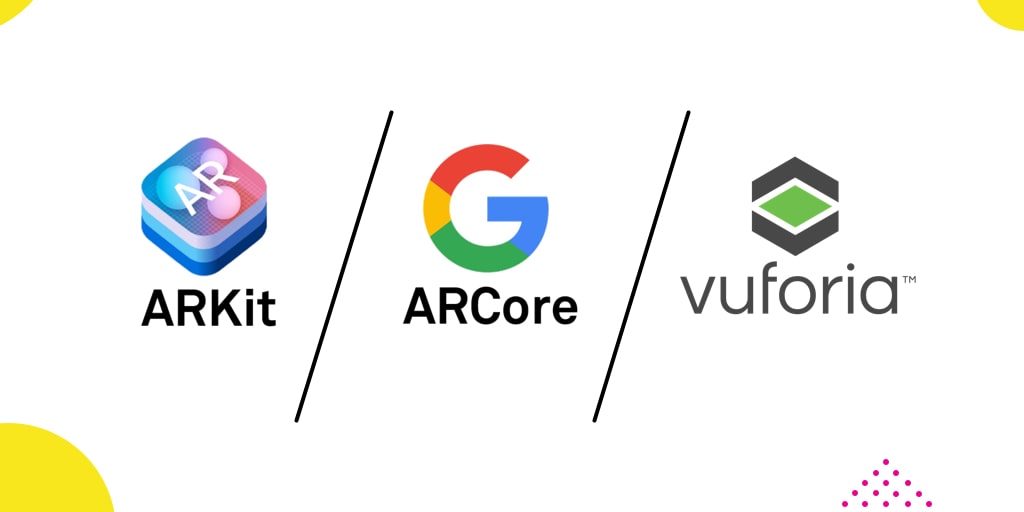The era of AR apps and immersive experiences is finally upon us.
Do you remember Google Glass? It debuted in 2013 for early adopters, then was released to the public the following year. It promised a new world where you could see your social feeds and surf the internet without touching a button. Then it basically fell off the face of the earth when the product was pulled for consumers in 2015.
What happened?
Aside from a few manufacturers adopting it for assembly-line workers and some surgeons using it to access reference material during operations, the public wasn’t ready for the technology yet.
In 2014, digital assistant technologies like Siri and Alexa hadn’t yet gained the mainstream popularity they enjoy now. In fact, we’ve just now reached a point where most people have spoken to a device to control it. Combining that experience with glasses may have just been too much of a leap at the time.
But not now.
With the global success of AR apps like Pokemon Go and celebrities offering their voices to help Alexa when she’s not feeling well, the world is ready to live an immersive experience. And based on the rumors that have been swirling the last two weeks, it looks like Apple is positioned to capitalize on it.
Details have leaked about a new product that may be released this fall. For now, it’s being called Apple Glass, but it’s possible that could change. It will be glasses similar to what Google offered, but with what’s expected to be a much more refined and intuitive user experience.
The Age of AR apps is about to begin. Is your business ready for it?
The Business Case For AR
Early estimates from Goldman Sachs show that AR and VR market valuation is expected to grow into a $95 billion market by 2025.

There have also been considerable investments made in AR technologies from the medical, automotive, aerospace, defense and gaming industries. The most notable within gaming has been Facebook, which has already spent more than $2 billion to purchase more than a dozen AR and VR companies. The defense industry is also moving into this space, not just with heads up displays (HUDs) for planes and other vehicles, but for soldiers to wear, with content that features bullet counters and the temperature of their weapons.
As consumers get more accustomed to HUDs in their cars and at work, their expectations for apps that extend this experience into shopping, real estate, events, outdoor activities and home entertainment will grow as well.
Now with Apple entering the market, we can expect it to leverage its extensive app development community to bring AR tech across all sectors of the economy.
What To Expect From AR
Everyone agrees the coronavirus pandemic is going to change everything. We’re already seeing major shifts in how consumers buy groceries, with online ordering and curbside pickup growing at an exponential rate. But that’s only convenient to coordinate from home, especially when you want to compare prices.
When we’re in a store, most of us use our phones to look up products to see if they’re cheaper somewhere else. With an AR technology like Apple Glass, it gets much easier. We expect there to be an app that shows the price comparisons at various stores when you’re looking at a pair of shoes or even a car, adding a new dimension to price negotiations.
It’s also possible for businesses to offer coupons based on your location to incentivize coming inside. This is already being used by restaurants to send push notifications to anyone who has downloaded their apps, but AR will put it right in front of their eyes.
Blue Whale’s AR Capabilities
We can help you discover AR opportunities that will excite your users and help you compete in the connected and smart world that’s emerging. We are a top Augmented Reality App Development company providing full-service development for AR apps, games and experiences.
From strategy to UX design to development, we’ve got you covered. Our team specializes in end-to-end app development for Fortune 1000 businesses and government agencies. Recent projects have included apps for organizations in healthcare, technology, public utilities, entertainment, retail, consumer products and the automotive industry.
And last year, Blue Whale Apps was named the #1 Mobile App Development Company by AppFutura, Clutch, and Good Firms in 2019.
Our AR services include making apps for Android and iOS, AR game development, AR integration with e-commerce, recognition AR apps (including QR codes and 3D objects), and location-based AR apps.
AR Apps Are The Future
Currently, the most prominent use of HUDs can be found in video games. Everyone is familiar with the speedometer in the corner of racing games and the life meter in adventure games, but that’s just the tip of the iceberg.
Everyday living with a HUD is coming soon to our glasses. There will be lots of opportunities for AR-based games like Pokemon Go, but it won’t be limited to this space. Retail, sports, concerts, social media, healthcare, education, and many more industries are going to see a major shift in how we experience them.

It’s not a question this time of whether or not AR will be accepted. It’s a question of how will your organization adapt.








